Hey you, ever wondered why failing a high school class feels like the end of the world? Chelsea Handler's got your back! Imagine a world where flunking a class doesn't brand you with a scarlet letter 'F' for life. Embrace the chaos of failure because, guess what, it's not game over. It's more like a quirky plot twist in the movie of your life. Failure isn't a dreaded monster; it's your quirky sidekick on the journey to success. So, hang tight because Handler's wisdom shows that the path to greatness might just be through a detour or two.
Chelsea Handler's Perspective on Academic Failure
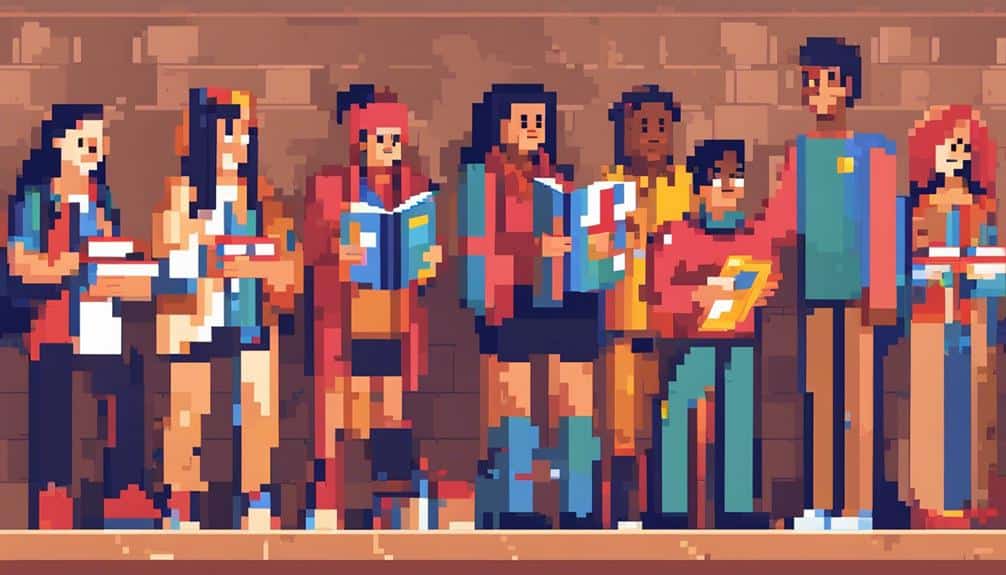
Imagine this: Chelsea Handler believes that experiencing academic failure in high school can be a valuable learning opportunity for students.
Imagine you're in high school, struggling to grasp the concept of calculus, and the thought of failing looms over you like a dark cloud. But fear not, according to Handler, failing that one class might just be the best thing that could happen to you. Who needs derivatives anyway, right?
Handler argues that failure shouldn't be viewed as the end of the world but rather as a stepping stone towards growth and resilience.
Imagine the life lessons you could learn from that one F on your report card – like how to bounce back from setbacks or how to develop a killer sense of humor to cope with the embarrassment of that parent-teacher conference.
The Impact of High School Expectations

High school expectations can greatly impact your academic performance and overall well-being during these formative years. It's like being handed a script for a blockbuster movie where the pressure is on to deliver the performance of a lifetime. Your grades become the audience's reviews, and your extracurricular activities are the behind-the-scenes bonus features.
The expectations set by parents, teachers, peers, and society at large can feel like a heavy backpack filled with textbooks, threatening to weigh you down at every turn.
You're expected to balance academics, sports, clubs, and volunteering, all while maintaining a social life and planning for a future that seems more uncertain than a choose-your-own-ending book. The pressure to excel in every aspect can sometimes feel like a never-ending game of academic whack-a-mole, where every missed opportunity is a strike against your perceived potential.
Breaking the Stigma of Failure

So, you messed up on that math test. Big deal! It's time to flip the script and start seeing failure as a stepping stone to success.
Embrace those academic setbacks, learn from them, and watch yourself grow like a resilient little academic beanstalk.
Let's break free from the chains of perfection and show the world that failure isn't the end—it's just the beginning of a more fabulous, mistake-filled journey!
Normalizing Academic Setbacks
Embracing academic setbacks in high school can help you develop resilience and learn valuable lessons about perseverance. Imagine a world where getting a B- on a test doesn't lead to an existential crisis or where failing a class doesn't feel like the end of your academic career. Normalizing these setbacks is like giving yourself permission to stumble before you start sprinting towards success.
Let's face it, high school can sometimes feel like a pressure cooker of expectations and stress. But what if we flipped the script and celebrated mistakes as stepping stones to growth? Maybe failing that algebra test isn't the end of the world; perhaps it's just a detour on the road to mastering quadratic equations.
Embracing Growth Through Failure
Normalizing the idea of learning and growing from failure is essential for personal development and success in academics. Instead of treating failure as the end of the world, why not see it as a stepping stone to greatness? Imagine if Thomas Edison gave up after his 1000th attempt at inventing the light bulb – we'd all be in the dark!
Embracing growth through failure is like adding sprinkles to a cupcake; it makes the journey sweeter and more colorful. Failure isn't a badge of honor; it's a symbol of your willingness to push boundaries and try new things. So what if you flunked that math test? Use it as fuel to ace the next one!
Failure is just practice for success; it's like a dress rehearsal before the big show. So, embrace failure like a long-lost friend, learn from it, and watch how it transforms you into a resilient, unstoppable force to be reckoned with. Remember, even a phoenix has to burn to rise from the ashes!
Learning From Setbacks
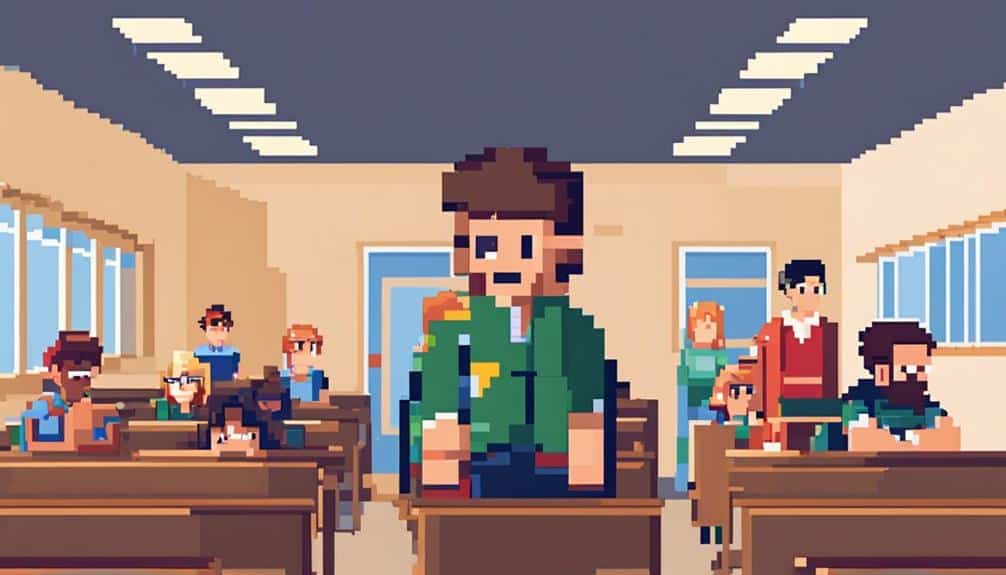
So, you've faced a setback – spilled coffee on your white shirt, missed a deadline, or tripped over your own feet in front of your crush. It happens.
But here's the kicker – setbacks are like those annoying pop-up ads in life; they're everywhere, impossible to avoid, and make you want to throw your computer out the window.
However, instead of letting setbacks crash your system, why not upgrade your mindset and treat them as opportunities for growth?
Embracing Resilience After Setbacks
Facing setbacks in high school is an opportunity to cultivate resilience and learn valuable lessons for the future. So, you got a C- in Algebra? Big deal! It's not like you were going to become a professional mathematician anyway. Embrace the setback, laugh it off, and move forward.
Life is full of unexpected twists and turns, much like that time you thought you aced the history test only to realize you studied the wrong chapter. Oops!
Resilience is like a muscle – the more you exercise it, the stronger it gets. Think of setbacks as your personal training ground for life's challenges. Did you trip and fall in the school cafeteria? Well, at least you provided some entertainment for your classmates. Embrace the embarrassment, learn from it, and next time, watch where you're going!
Growth Mindset for Setbacks
Embrace setbacks as opportunities to cultivate a growth mindset by learning from your mistakes and adapting for future challenges. It's like when you accidentally use salt instead of sugar in your baking – sure, your cake might turn out a bit wonky, but you learn to double-check your ingredients next time.
Setbacks are like life's way of nudging you to pay attention, kind of like that friend who keeps reminding you not to text your ex after a few drinks.
When you face a setback, take a moment to reflect on what went wrong and how you can improve. It's like playing a video game and failing a level – you don't just throw the controller and storm off (well, maybe you do, but let's pretend for a second). Instead, you analyze where you messed up and strategize for the next attempt.
Overcoming Setbacks With Determination
Imagine this: you're cruising through high school, acing exams left and right, when suddenly, bam! You hit a bump in the road. Maybe it's that dreaded algebra class that's got you stumped, or perhaps you flub a presentation in front of the whole school.
Instead of wallowing in self-pity, channel your inner warrior spirit. Take that setback, wrap it in determination, and use it as fuel to propel yourself forward.
Think of setbacks as your personal training montage in a cheesy '80s movie. Rocky didn't become a champ by dodging every punch; he took the hits, learned from them, and came back swinging. Embrace setbacks as your sparring partners, teaching you valuable lessons along the way.
Developing Resilience in Students
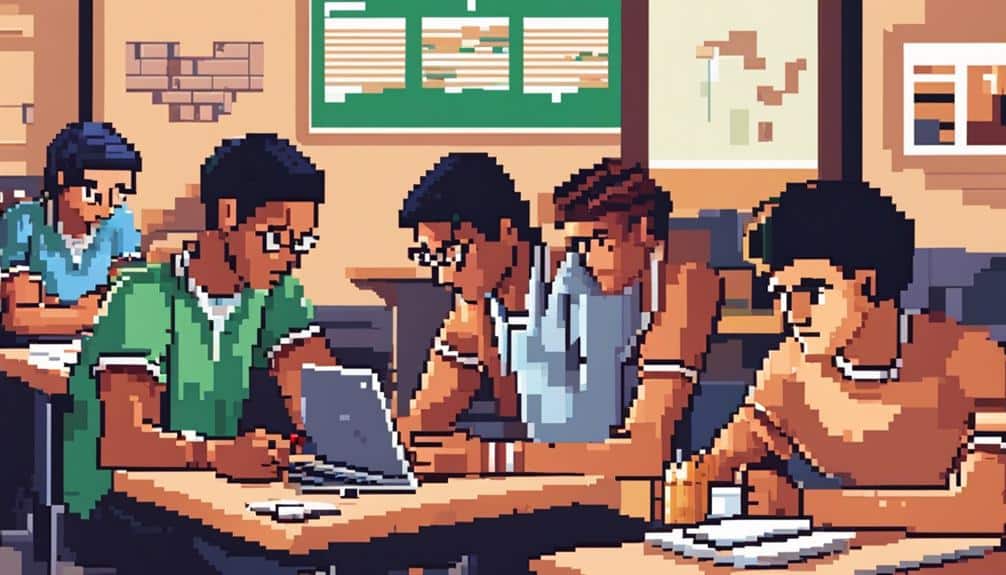
Developing resilience in students involves fostering a mindset that embraces challenges as opportunities for growth. Imagine a world where setbacks are seen as stepping stones to success rather than stumbling blocks to failure.
Here are three key ways to cultivate resilience in students:
- Encouraging a Growth Mindset: Instead of viewing difficulties as insurmountable obstacles, teach students to see them as chances to learn and improve. Embrace the power of 'yet' – you may not have mastered a concept yet, but with effort and perseverance, you'll get there.
- Promoting Problem-Solving Skills: Equip students with the tools to tackle challenges head-on. Encourage them to brainstorm solutions, seek help when needed, and adapt their approach if the initial strategy doesn't work. Remember, there's more than one way to solve a math problem or navigate a social issue.
- Celebrating Resilience: Recognize and celebrate students' efforts in overcoming obstacles. Highlight stories of perseverance and resilience to inspire others to keep pushing forward, even when the going gets tough. After all, resilience isn't about never falling down; it's about getting back up every time.
Redefining Success in Education

To redefine success in education, prioritize holistic growth and individual progress over traditional academic achievements. Instead of solely focusing on grades and test scores, imagine a world where students are celebrated for their unique talents, personal growth, and resilience in facing challenges.
Picture a school where creativity, critical thinking, and emotional intelligence are valued as much as memorization and regurgitation of facts. In this whimsical universe, success isn't measured by how well you conform to a standardized mold but by how well you adapt, innovate, and contribute meaningfully to society.
Think about a student who excels in art, music, or sports but struggles with traditional academics. In our redefined education system, this student isn't deemed a failure but rather celebrated for their creativity, perseverance, and passion.
Success isn't one-size-fits-all; it's a colorful tapestry woven with diverse skills, interests, and experiences. Let's redefine success in education to embrace the full spectrum of human potential and pave the way for a brighter, more inclusive future.
Addressing Mental Health and Academic Pressure

Addressing mental health and academic pressure starts with recognizing the detrimental impact these factors can have on students' overall well-being and academic performance.
- Acknowledge the Problem: It's time to stop pretending that students can function at 100% efficiency all the time. Burnout is real, and mental health struggles aren't just a myth perpetuated by students trying to avoid that dreaded calculus test.
- Encourage Open Communication: Let's create a culture where students can talk about their stress levels without being met with dismissive remarks like, 'Back in my day, we didn't have stress, just tough love!'
- Provide Supportive Resources: Counseling services shouldn't be hidden away like that embarrassing uncle at family gatherings. Make mental health resources readily available and destigmatize seeking help.
After all, it's not just about acing that chemistry exam; it's about thriving both academically and mentally in the long run.
Supporting Students Through Challenges
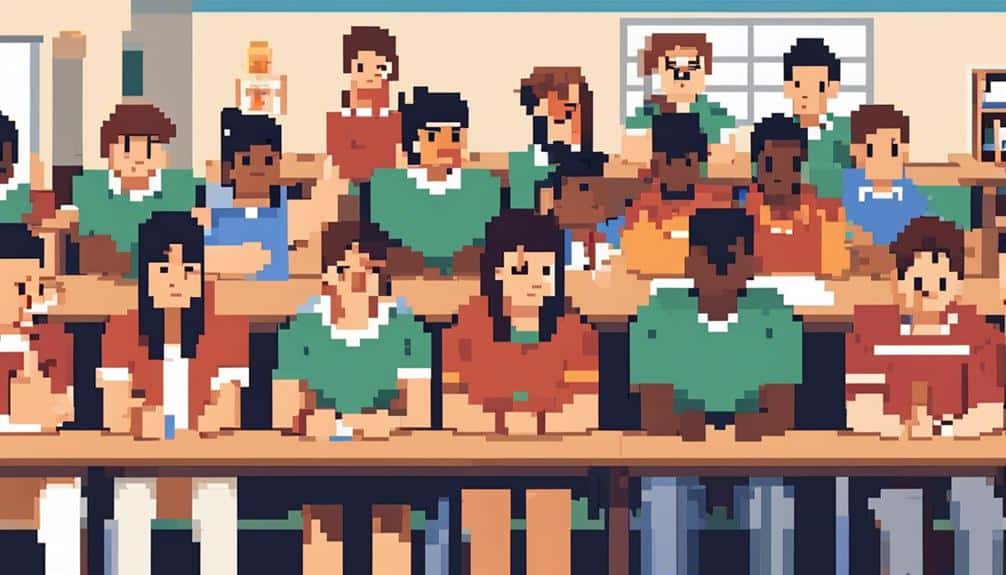
Support students by offering them practical solutions to navigate through their challenges effectively. Let's face it, high school can feel like a whirlwind of drama, tests, and more drama.
When students are struggling, instead of just telling them to 'try harder,' why not provide tangible support? How about organizing study groups led by teachers or older students who've aced the subject? Pair struggling students with mentors who can share tips and tricks for success.
Maybe even create a designated chill-out zone for those moments when the pressure becomes too much. Imagine a serene room equipped with fluffy pillows and calming music, where students can take a breather and regroup.
And hey, let's not forget about those overwhelming assignments. Break them down into manageable chunks and teach students how to prioritize tasks.
Encouraging Self-Compassion in Education
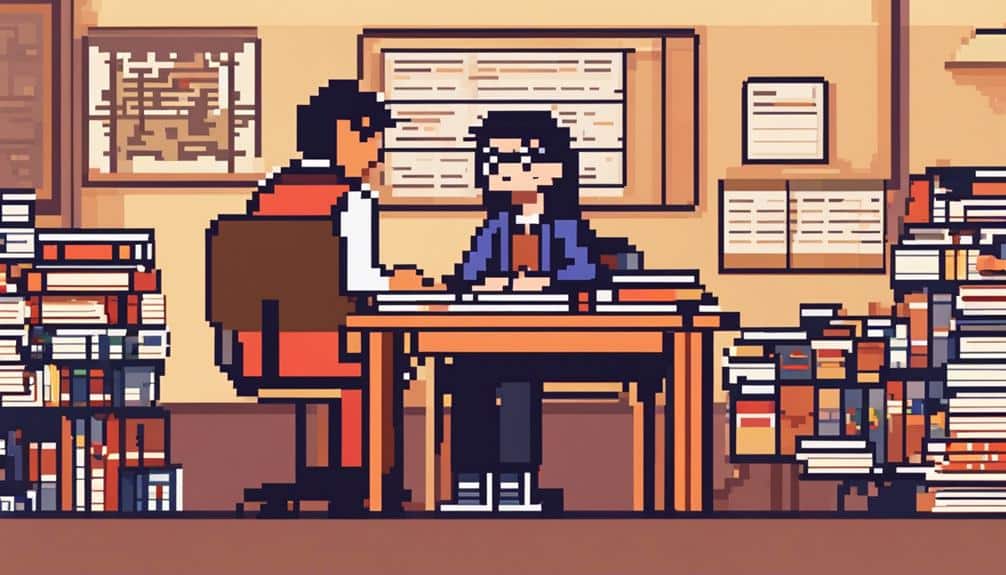
Encourage students to show themselves kindness and understanding as they navigate the challenges of their educational journey. Let's face it, academia can be a battlefield of stress, deadlines, and the occasional existential crisis. So, why not arm yourself with the ultimate weapon – self-compassion?
Here are three ways to embrace self-compassion in your educational endeavors:
- Celebrate Progress, Not Perfection: Instead of beating yourself up over a less-than-stellar grade, pat yourself on the back for the effort you put in. Remember, Rome wasn't built in a day, and neither is your GPA.
- Talk to Yourself Like You Would to a Friend: Would you call your bestie a failure for struggling with calculus? Probably not. So, why do it to yourself? Be your own cheerleader, not a harsh critic.
- Learn from Mistakes: Mistakes are like pop quizzes from life – they teach you valuable lessons. Embrace them, learn from them, and grow stronger because of them.
Conclusion
So, next time you fail a class, just remember that Chelsea Handler has your back. Embrace that F, wear it like a badge of honor, and remember that it's just a small bump in the road to success.
After all, who needs calculus when you have the life skills to navigate the real world? So go ahead, fail that class, and remember, it's all just part of the journey to becoming a well-rounded, resilient individual.
